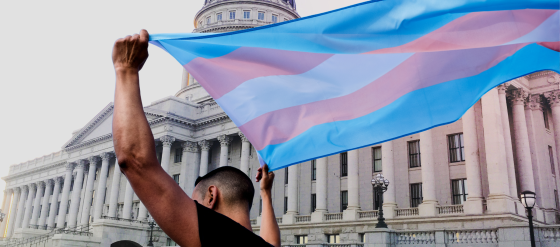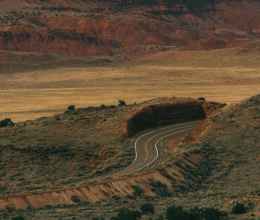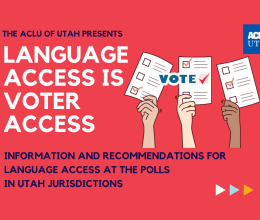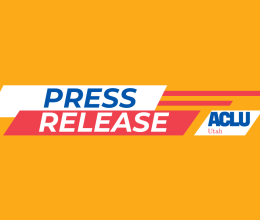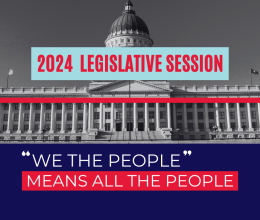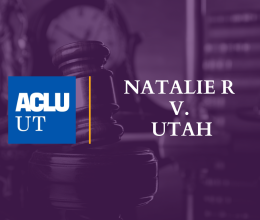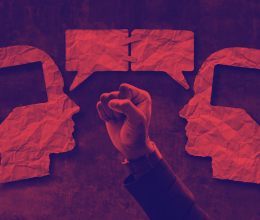An ACLU of Utah staffer’s first-person account of the midterm election in Utah’s largest and most diverse county.
By Rachel Appel
Observing a polling place on Election Day in Utah is eleven hours of exhausting, dizzying, and complex work. But it is also incredibly rewarding. Hour by hour, your priorities change as problems arise, rumors fly, and you constantly dig into your bag to locate masking tape, pens, printer ink, or whatever will solve the crisis of the moment. Through it all, election observers need to stay focused on several key objectives: making sure everyone has an equal opportunity to vote, that those who want to vote can, and that all votes count. Here’s my story of working toward those goals in San Juan County during the 2018 midterm elections.
Our Impact in San Juan County
For several years, the ACLU of Utah has worked to protect and expand voting rights and access to the ballot in San Juan County. The county, widely known as home to movie-backdrop landscapes like Monument Valley, Valley of the Gods, and the Four Corners area, includes the Utah portion of the Navajo Nation. Native Americans make up a slight majority of the county’s 15,000 residents.
This November marked nine months since the ACLU of Utah reached a positive settlementwith San Juan County to resolve our voting rights lawsuiton behalf of the Navajo Nation Human Rights Commission. A separate, non-ACLU lawsuit also established new boundaries for county commission and school board districts in San Juan, making the 2018 election pivotal for control of the county government, and focusing national attention on the results.
The day before the election, Leah Farrell, the ACLU of Utah’s Senior Staff Attorney, and I drove 380 miles southeast from Salt Lake City to observe voting at two locations on the Navajo Nation. We made the trip to confirm that San Juan County is adhering to the settlement, which includes providing effective Navajo language assistance, and maintaining in-person voting locations on the Navajo Nation. Leah and I were joined by election observers from the Rural Utah Project, Utah’s Lt. Governor’s Office, and the U.S. Department of Justice Civil Rights Division.
Leah stationed herself at the Monument Valley Welcome Center (a few hundred feet from the Arizona border), while I observed voting 60 miles away at Montezuma Creek. Another polling location was at Navajo Mountain—a four-hour, 190-mile drive from the county seat in Monticello. I mention these distances so that you can understand the immense scale of San Juan County—the largest county in Utah by land area—and the burdens it places on Navajo residents seeking access to basic services and the ballot box. For another depiction of how geography and distance complicates voting in San Juan County, check out this first-person account in the San Juan Record. (Map credit: www.ilovehistory.utah.gov)
Inside a Polling Place
At Montezuma Creek, I witnessed a lack of awareness among many voters and poll workers about Utah’s provisional ballot system—an Election Day safeguard that allows people to vote without ID. This missing information left many Montezuma Creek voters with the false impression they were unable to vote. I also noticed issues related to ballot translation for non-English proficient voters.
The biggest problem I witnessed was that too many voters at Montezuma Creek were unaware that they needed identification—which includes a photo ID like a driver’s license or tribal membership card or two forms of non-photo ID that show the voter’s address—to cast a ballot in Utah. To inform voters about the need for an ID, I taped several makeshift signs to the front door of the building to ensure everyone was aware of their rights and the voting requirements. Other voters I spoke with didn’t realize they could cast a provisional ballot even if they lacked valid ID. To make sure that no eligible voters left without exercising their constitutional right to cast a ballot, I stood near the door of the polling place and educated residents about provisional ballots and voter IDs. Like an Election Day “catcher in the rye,” I kept many people from leaving the building without casting a provisional ballot. I am glad to say that everyone I approached ended up casting a ballot that day.
While Navajo people make up a majority of the Native American population in San Juan County, members of the Mountain Ute nation also reside in the county. Because county officials only provided Navajo translators, some voters from the Mountain Ute nation had to rely on their limited English skills to fill out the ballot. In addition, I spoke to some voters at Montezuma Creek who described how the Navajo translators hired by the county described filling out a provisional ballot as hardship. They told me this explanation discouraged then from voting provisionally. Others told me that translators did not explain to voters that they could opt to write-in a candidate.
Final Take
Despite these lapses, Leah and I found that the voting process was much improved compared to the primary elections held in June when lack of electricity, air conditioning, and a shortage of ballots caused voting disruptions at polling places on the Navajo Nation. The county’s efforts to provide effective Navajo interpretations of voting materials, while not perfect, were also generally superior to previous elections cycles. We also heard from several people that the availability of early voting locations on and near the Navajo Nation in advance of the general election was valuable, in part because those locations allowed elderly, Navajo-speaking voters time, space, and assistance to complete their ballots. Even with these improvements, however, much work remains to be accomplished before the 2020 election to ensure all voters in San Juan County properly understand the voting process, the state’s ID requirements, and how they can cast their ballots.
After the Election
The November 6, 2018 election proved historic for San Juan County. For the first time since Native Americans gained suffrage in Utah in 1957, the balance of political power looks like it has shifted to provide the Native American population with a majority representation in county government. Based on the uncertified results, two of the three county commission seats will be held by members of the Navajo Nation. The ACLU is a nonpartisan organization, and we play no role in any campaign or in the electoral politics of candidates. We fight to protect the vote no matter what the outcome may be. And no matter what the ultimate counts show, we are proud of our role in securing and monitoring additional efforts to provide equal and effective voting opportunities for all voters in San Juan County in this historic election, and for elections to come.
Rachel Appel is the ACLU of Utah’s Community Outreach Fellow.
